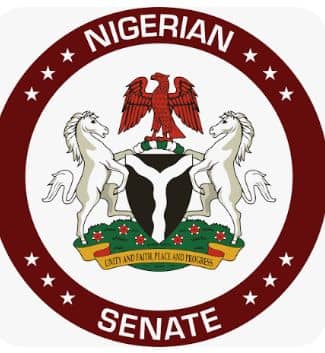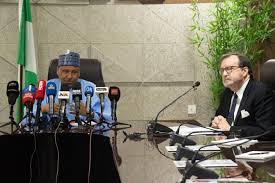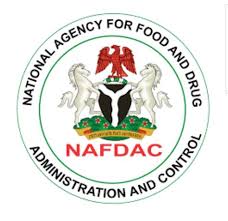In a sweeping move that could redefine Nigeria’s democratic timeline, the National Assembly has proposed that the 2027 presidential and governorship elections be held in November 2026. Six months earlier than usual, SUNDAY ABORISADE, in this piece, provides the implications
In what may go down as one of the most ambitious electoral reform efforts in Nigeria’s recent history, the nation’s apex legislative institution has unveiled a comprehensive proposal to move the 2027 presidential and governorship elections forward by six months, from the traditional February-March window to November 2026.
The proposed shift, which is part of a broader set of amendments to the Electoral Act 2022, is designed to ensure that all election petitions are concluded before the May 29, 2027 handover date. This move, lawmakers say, aims to finally end the embarrassing cycle of leaders being sworn into office while still defending their victories in court, a recurring blot on Nigeria’s democratic record since 1999.
The reform drive, championed by the Joint Committee on Electoral Matters of both chambers of the National Assembly, was formally presented at a public hearing in Abuja on Monday, drawing participation from the Independent National Electoral Commission (INEC), civil society organisations, legal experts, journalists, and other democracy stakeholders.
Under the proposed amendment, elections into the offices of President and State Governors must be conducted not later than 185 days before the expiration of the incumbents’ tenure. By that calculation, Nigeria’s next general elections would be held in November 2026, marking the earliest start to a general election season since the return to civil rule in 1999.
Similarly, legislative elections into the National and State Assemblies would also be held at least 185 days before the end of their current terms. The idea, according to the National Assembly, is to synchronise the entire electoral calendar in a way that grants ample time for litigation and judicial review before the next inauguration date.
Hon. Adebayo Balogun, Chairman of the House of Representatives Committee on Electoral Matters, told participants at the hearing that the shift was borne out of a national consensus that Nigeria’s democracy can no longer afford the perennial delays and post-swearing-in disputes that have characterised its electoral process.
According to Balogun, “We are proposing to shorten the duration for election litigations.”
He added, “Tribunals will now have 90 days instead of 180 to deliver judgments, while appellate courts will have 60 days. The Supreme Court will also have its own timeframe within the 185-day window. This ensures no litigation extends beyond the handover date.”
To bring this vision to life, lawmakers are pushing for significant constitutional amendments. The Joint Committee is recommending changes to Sections 76, 116, 132, and 178 of the 1999 Constitution, which currently fix election timelines.
Under the new proposal, the power to determine election schedules would be moved from the Constitution to the Electoral Act, giving INEC greater flexibility to adjust election timetables based on evolving logistical realities.
A draft note from the committee explains that this would eliminate the frequent need for constitutional amendments each time INEC or the National Assembly seeks to modify electoral timelines.
Equally central to the reform are proposed amendments to Section 285 of the Constitution, which sets deadlines for tribunal judgments, and Section 139, which governs post-election disputes. By aligning these timelines with the 185-day pre-handover window, lawmakers hope to institutionalise a litigation process that ends before any new government is sworn in.
Beyond the calendar shift, the National Assembly is also pushing for deeper digitalisation of the electoral process. Section 60(5) of the proposed amendment mandates that presiding officers transmit results from polling units both electronically and manually, including the number of accredited voters.
This dual transmission process, legislators argue, will strengthen transparency and reduce opportunities for manipulation at collation centres, a recurring problem in past elections.
INEC, represented at the hearing by Professor Abdullahi Zuru, threw its weight behind the reform. Zuru described electronic transmission as “a necessary step to enhance public confidence and minimise human interference.”
Zuru said, “Conducting elections earlier will improve planning, logistics, and the resolution of petitions. It will also reduce the risk of post-swearing-in reversals and enhance confidence in the democratic process.”
To further enforce transparency, the new proposal prescribes a fine of ₦1 million or a one-year jail term, or both, for any election official who distributes unstamped ballot papers or result sheets.
A major innovation in the draft bill is the introduction of early voting, a system that would allow security personnel, journalists, election observers, and INEC officials who are deployed on election duty to cast their ballots before the general voting day.
According to the proposed Section (2), “There shall be a date set aside for early voting not later than 14 days to the day of the election.”
This development could enfranchise thousands of Nigerians who have been routinely excluded from voting due to their professional obligations on election day.
The reform also proposes a long-awaited breakthrough for the Nigerian diaspora. Millions of Nigerians living abroad, from the United States to the United Arab Emirates, could soon gain the right to participate in presidential elections if the National Assembly’s diaspora voting provision is passed into law.
This measure, lawmakers believe, will not only promote inclusion but also deepen the connection between the Nigerian state and its global citizens, many of whom contribute significantly to the economy through remittances.
Another area of focus is internal party democracy. The proposed amendments aim to tighten the regulation of party primaries, curbing the widespread imposition of candidates by party leaders.
The bill seeks to empower INEC to monitor and sanction political parties that fail to conduct transparent primaries or that engage in vote-buying and result falsification. It also introduces tougher penalties for result manipulation, vote suppression, and obstruction of electronic systems.
Furthermore, INEC may soon have the authority to approve alternative means of voter identification where Permanent Voter Cards (PVCs) are unavailable due to logistical constraints. This clause, reform advocates say, will ensure that no eligible voter is disenfranchised due to bureaucratic or technical delays.
The proposals have drawn broad support from civil society organisations, election observers, and other stakeholders, many of whom described the November elections and shortened judicial timelines as a pragmatic approach to curbing electoral crises.
Civil society representatives at the public hearing argued that early elections would allow courts to conclude petitions before new officeholders are inaugurated, thereby preventing the familiar pattern where courts nullify elections months after winners have assumed office.
Some representatives of various civil society groups on the occasion described the proposed amendments as one of the most consequential reforms ever seen in two decades.
They were convinced that it would remove a major source of instability in our democracy and give Nigerians greater confidence that their votes truly count.
Even INEC, which will bear much of the operational burden, expressed optimism that the proposed reforms would make elections more manageable.
The Commission’s representative noted that earlier polls would ease pressure on logistics, especially during the dry season when weather and road conditions are more favourable for nationwide operations.
The push for earlier elections did not arise in a vacuum. Since the return of democracy in 1999, Nigeria’s elections have been repeatedly marred by prolonged legal battles. In 2007, for example, then-President Umaru Musa Yar’Adua publicly admitted that the election that brought him to power was deeply flawed.
In 2019, President Muhammadu Buhari faced multiple legal challenges to his re-election, with the Supreme Court delivering its final judgment almost eight months after the vote. Similarly, after the 2023 elections, several governors and legislators were still fighting for their mandates months after being sworn in.
These episodes, analysts argue, have undermined public trust in Nigeria’s democratic institutions and fuelled cynicism about the integrity of the political process.
By frontloading elections to November and accelerating judicial timelines, the National Assembly hopes to avert a repeat of these controversies.
Despite the overwhelming enthusiasm, the road to implementation remains steep. The proposed constitutional amendments require the approval of two-thirds of both chambers of the National Assembly and at least 24 state Houses of Assembly.
This means that bipartisan consensus, often elusive in Nigerian politics, will be essential for the reforms to materialise. Political parties, too, will have to realign their internal calendars, as primaries, campaigns, and nomination processes would need to begin months earlier than usual.
Legal scholars also caution that shortening judicial timelines must not come at the expense of justice. Election tribunals, they argue, already operate under intense time pressure, and further compressing their schedules without commensurate procedural reforms could compromise the quality of judgments.
Nonetheless, proponents insist that with better planning, digitised evidence management, and increased judicial resources, the new framework can work effectively.
As the bill progresses through the legislative process, many Nigerians are watching closely. If enacted, these reforms would mark a decisive shift toward a more orderly and transparent electoral system.
The broader implication is profound: for the first time in Nigeria’s history, elected leaders could assume office without the cloud of pending litigation, a symbolic and practical step toward democratic maturity.
In the words of one ranking lawmaker in his remarks, “This is not just about changing dates. It’s about changing the culture of our democracy, from one of perpetual contestation to one of closure, confidence, and credibility.”
With less than two years until the next general elections, the clock is ticking. The National Assembly’s proposals offer a rare window for Nigeria to fix one of its most persistent democratic flaws, ensuring that when the next president takes the oath on May 29, 2027, the gavel of justice has already fallen, and the will of the people stands undisputed.
With this, lawmakers hope to end the era of leaders taking office amid unresolved court cases and strengthen the integrity, transparency, and credibility of Nigeria’s electoral process.





